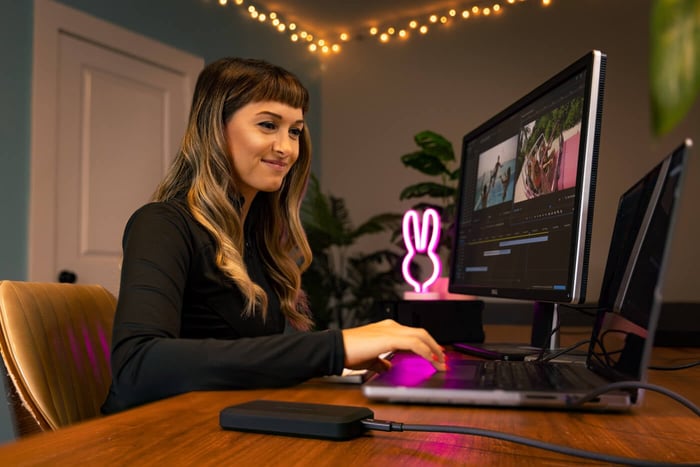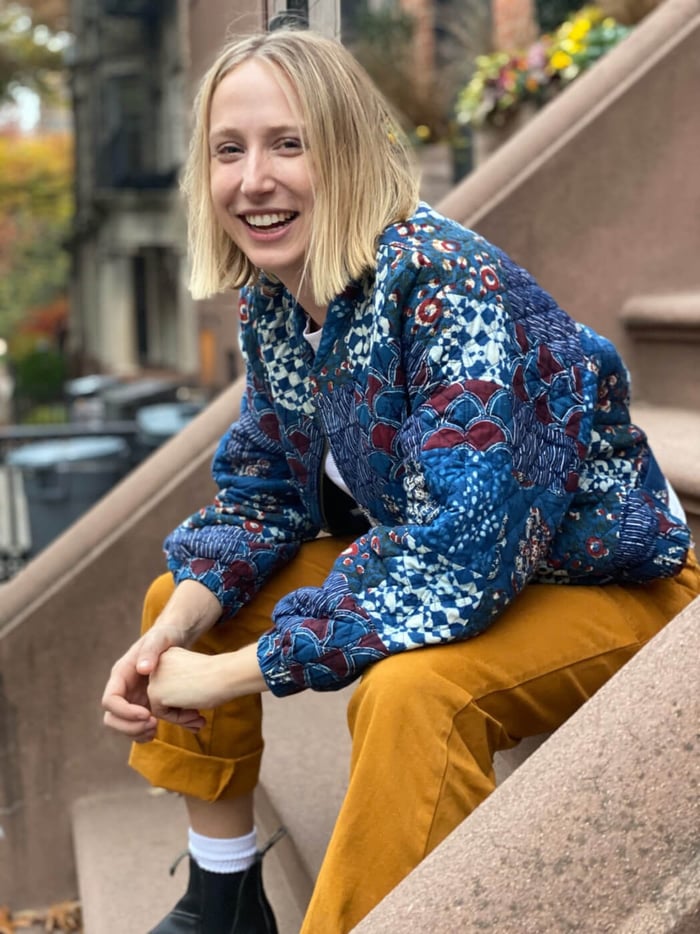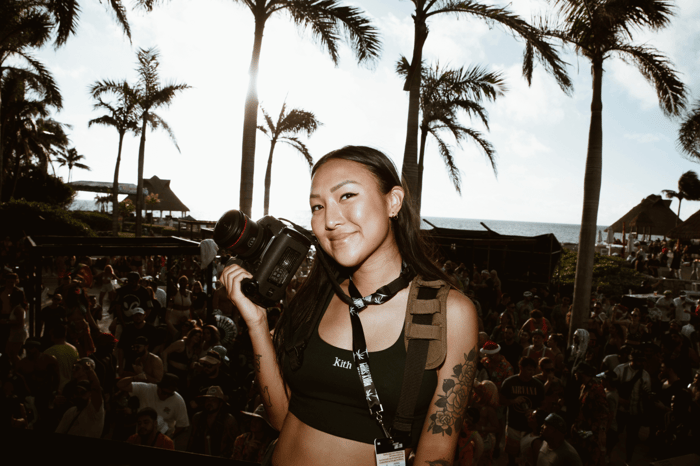For this installment of our Creator Spotlight series, we sat down with one of the most innovative video creators out there today. Her VFX style and concepts are setting the bar for creative branded content. Of course, we're talking about Cache Bunny. Here's what she had to say...
So great to have you here with us, Cache! We are huge fans of your work here at Glyph and appreciate you taking the time to chat. Hopefully this will be the first collab of many…
Cache: Great to be here! Thank you. I was so excited because the timing couldn't have been better. We're in the process of building this new 18-camera array right now, and when you think about it, shooting with this array means 4K120 times 18 really long clips! We were just absolutely tearing through data and we didn't have a single place that could fit everything, so it was spread over all these drives and it was honestly a nightmare. The Glyph products came at the perfect time and we're super excited to consolidate the media onto the RAID and then use the 8TB Atom Pro SSD as a quick edit/transfer drive because pulling from 18 cards is insane. The hard drive is a huge piece of this because we need something fast. I'm super excited! Thank you guys so much!
Absolutely. Happy to help you make magic. For anyone that’s unfamiliar with you and your work, how would you describe yourself to them?
Cache: I usually just use an all-encompassing term like “I'm a video creator”, because it feels like a lot of other things don't necessarily summarize it properly. I write the concepts, and then see the process all the way through shooting to editing to polishing and delivery, so “video creator” is all-encompassing, but adding that VFX buzzword helps describe it fully. So in conclusion, video creator and VFX artist.
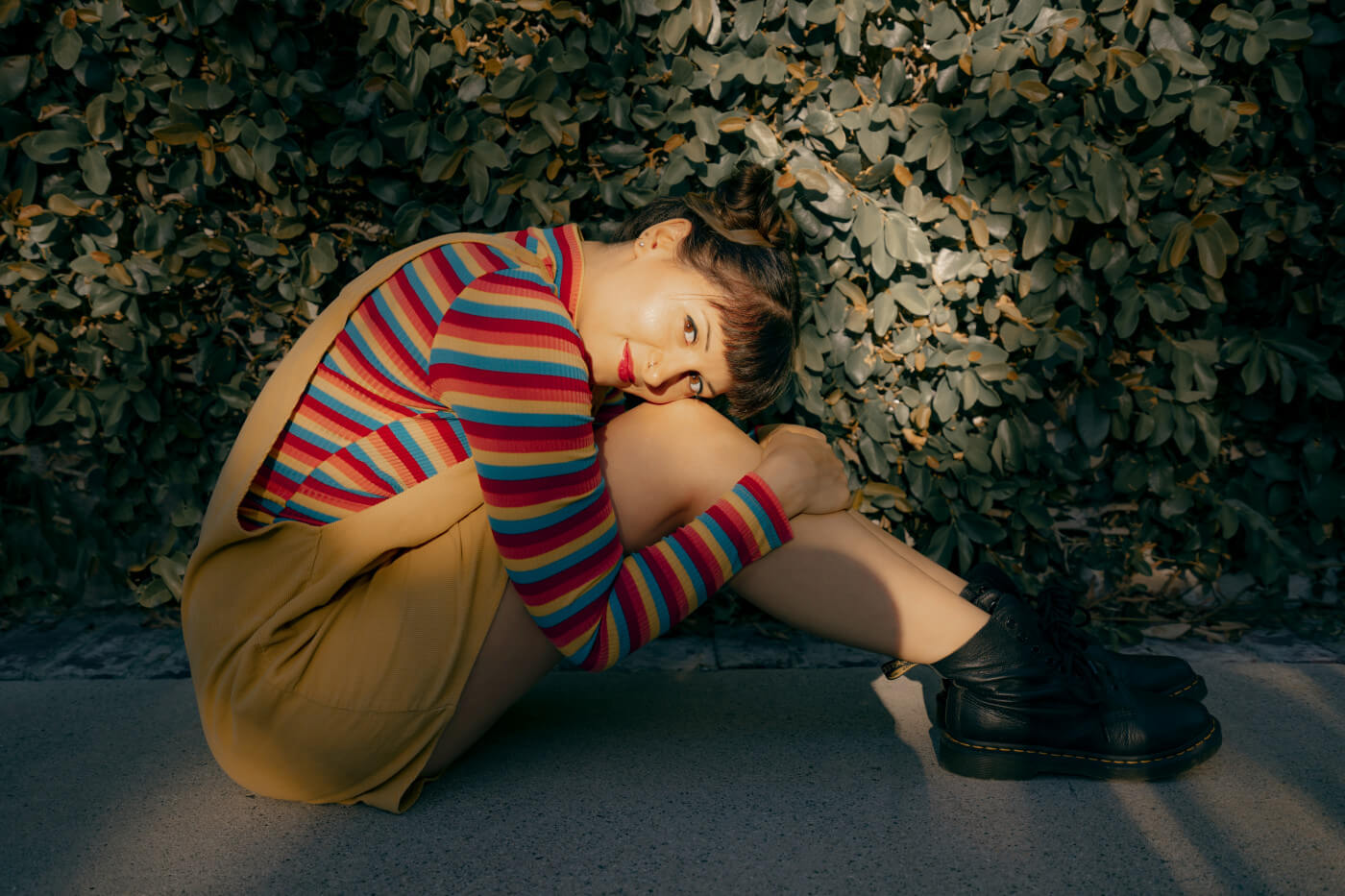
We're curious about the beginnings of your career. Talk to me about the sequence of events that led to where you are today.
Cache: I was involved in the New York nightlife scene, but at that time, I was also going to film school at the School of Visual Arts. I was studying video editing, and specifically went there because they were one of the only colleges that had a concentration in video editing. I had zero interest in doing any directing, shooting, writing or anything like that. I just wanted to edit.
On the side, I was doing some nightlife stuff throwing parties at Webster Hall. I was in film school but I was also developing this career in the music and nightlife scene as well as within marketing. At that time, I was exclusively doing traditional editing - no effects, no shooting, no concepting - just straight up editing. I started doing some freelance projects in New York and ended up getting a job at MTV with my friend Seth Hagenstein. He was the first director who really trusted me with big projects, and we ended up doing a lot of work together! It was an amazing place to learn a more formal workflow and how a team of video editors work together, because I think that's something that a lot of freelance editors miss out on. I feel like that gave me really good insight on how to properly share and structure projects. I was in-house at MTV for about six months, and then moved to LA to work with Insomniac Events. Again, very musical. Insomniac is the event production company that does EDC and tons of other festivals, and I worked with them as an in-house editor. My whole career has always been very focused on bringing music and video together - not necessarily always as music videos - but as videos that are musical, whether it's live performances, recaps or visualizers.. About a year later I discovered the work of Ari Fararooy who happened to live in LA. At the time, he was this celebrity because I saw his Lighting In A Bottle video, and it was just the coolest video I had ever seen. I really wanted to meet him, so I reached out and he got back to me and we hit it off! I ended up apprenticing for him for a while, and he was really the one that got me into what I'm doing now. He was the one that connected me with my first clients and taught me After Effects. He's the one that helped me transition from an in-house editor to a freelance career, and pushed me in that direction. I really owe a lot of what I'm doing now to him. He helped me on the journey from only wanting to edit, to moving to shooting, directing and concepting. It was almost a backwards process as a result of wanting to do certain kinds of edits.
They say that oftentimes Directors with a background in editing have an advantage. Do you agree?
Cache: In film school, that was a superpower because in that world, everybody wanted to be a director. There was just so much competition and I was just floating on my own island of ‘I just want to edit.’ Even all the editing students wanted to direct! They wanted to edit so that they could eventually direct, and I was the only one who really didn't have that ulterior motive. Ultimately, I think that made me one of the most valuable people there at the school because all of those directors needed editors to work with. As one of the only people who didn’t dread the editing process, everybody naturally wanted to have me on their team as their editor. Working long, grueling hours was music to my ears. I was like ‘Yes, I want to work overnight. Yes, I want to edit all your footage that you maybe didn't shoot properly which is now a puzzle to make work. I actually love that stuff.’ So then, I was able to work with some of the best talent in the school, and they ultimately connected me with MTV. It was really like a domino effect, but being focused on that one thing that I wanted to do really well and thoroughly allowed me to explore other facets as well.
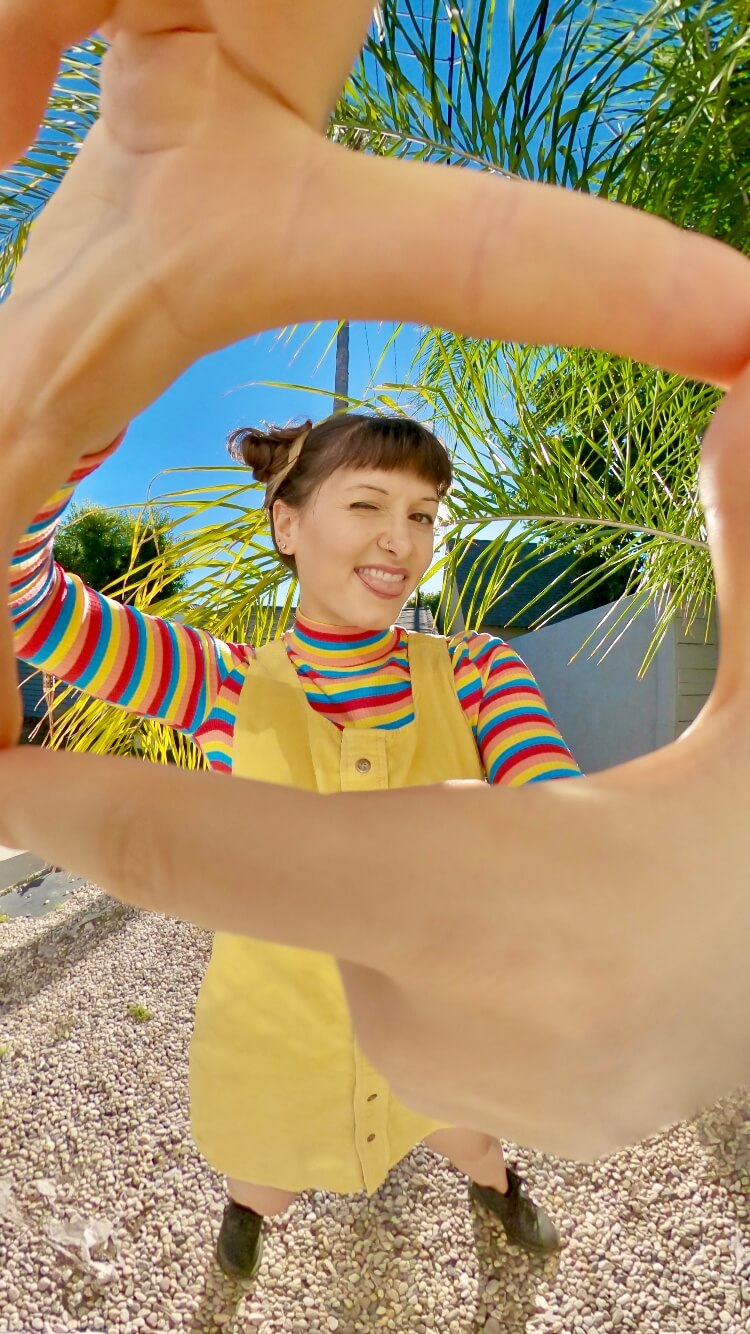
What's an example of an early project that really helped you break out of your creative comfort zone?
Cache: Early on, I was working on more narrative work,, and then I had a really big surge of inspiration to go in a totally different direction after hearing Skrillex's music. This was all at the same time that I was moving to New York, discovering the music and nightlife scene, and honing a totally new, creative video editing style. Everything came together and became this surge of inspiration that made me feel like ‘I need to do this right now. I need to make this thing that I want to see.’ His music was just a very visual experience for me, with so many small textural nuances and details. I worked for months and months on this one video, just because I wanted to be able to experience his song visualized - where every sound had something to represent it. It was a long process because I had no storage on my computer. Then, Skrillex was coming back into town, and it was right at the cusp of his career blowing up, and he was coming back to Webster Hall. My friends who were watching me edit and pulling late nights were like ‘Alright, you have to finish it. We gotta give it to him when he's there. We got to give it to him on DVDN’. I hustled and worked so hard, even missing school to work non-stop to get this video done so that I could deliver it to him, and that's exactly what happened. When I gave it to him, he was like ‘Oh yeah, yeah, okay. I'll watch it’. He put it away and I don’t know if he ever did. It was this very unsatisfying thing. Fast forward to a year later - a friend of mine was on tour with Skrillex and he came back again. A friend insisted that we show him the video. He loaded it up and he brought Skrillex in, and we were all standing there in this very very small room with it on the TV, and we all watched it. Skrillex kept looking over at me and saying ‘You made this?’ He loved it! After that, he began using my video for his tour visuals in Japan and all over the world! Of course, as a fan of his and an aspiring video artist, that was huge for me - just monumental and so validating that this video that I had prioritized over so many other things in my life really paid off. It changed the way that I was seen by other creators because now I had this sign off from one of the biggest artists in the world. Really, that was my resume at that moment. I started getting jobs just from that happening.
Many years later, I got a call from his record label OWSLA,. They called, texted, and emailed all at the same moment because they were in a meeting with him and he was like ‘call her, call her, call her’. It was very random and I was at work at the time, so I called him back a few minutes later, and they were like ‘Skrillex wants you on a project’. So, we lined up on that one project and it was a three-day turnaround. I just sat there for days non-stop. I did not sleep. I sourced videos from all over the Internet and had that same sort of intricate mindset. This time it was a little bit easier because I already knew the process. It was incredible. Hopefully there's more work in the future because I'm just such a huge fan.
Check out Skirillex - "Scatta" Music Video by Cache Bunny
So many people that look at your page are inspired by what you do and they're like ‘Let me just copy what she's doing and try and make it my own.’ but I have to say, as much as people may try to imitate - I don't think anyone can imitate the level of grit that you have to grind it out no matter how many consecutive hours you have to put in while really caring about the details.
Cache: I really appreciate that. I think the culture with TikTok is different. Copying people's style is now a style. It's now accepted and it's part of the culture, but a lot of the stuff I do is too time consuming. It's not like an assembly line. You can't always make these things quickly or with presets because they are unique to the footage. I have had people sort of bite off my style in certain ways, but I've been pretty fortunate to to dodge a good amount of that. I think mostly just the simpler stuff will get replicated, but not everything.
You've got an amazing list of clients - Red Bull, Microsoft, Adobe, Expedia, Virgin, Will Smith, Jason Derulo the list goes on… what would you like to see happen next? Are there any brands or people that are on your collaboration bucket list?
Cache: No, there are not. I am not goal oriented and I mean that in a positive way. I like to let things unfold naturally. I've always let opportunities come to me and try not to box myself in to only working with certain individuals or brands. Keeping an open mind is key by saying to myself, ‘You know what, Microsoft just reached out wanting to do something with a race car driver. I've never done anything with a race car driver. I don't even know where to start, but now it's this interesting challenge. Let me go online, look at every bit of race car footage that exists in the world and see what I can do with this.’ To me, that's really stimulating. The things that I don't necessarily know anything about are sometimes the most rewarding challenge. I like to do what feels right in the moment and work intuitively.
I will say that music videos are something I’ve always had my sights set on. I want to work from an idea for a music video, rather than from a job that I need to create something. I'm just waiting for things to line up at the right moment where I feel ready and have the right artist to work with.
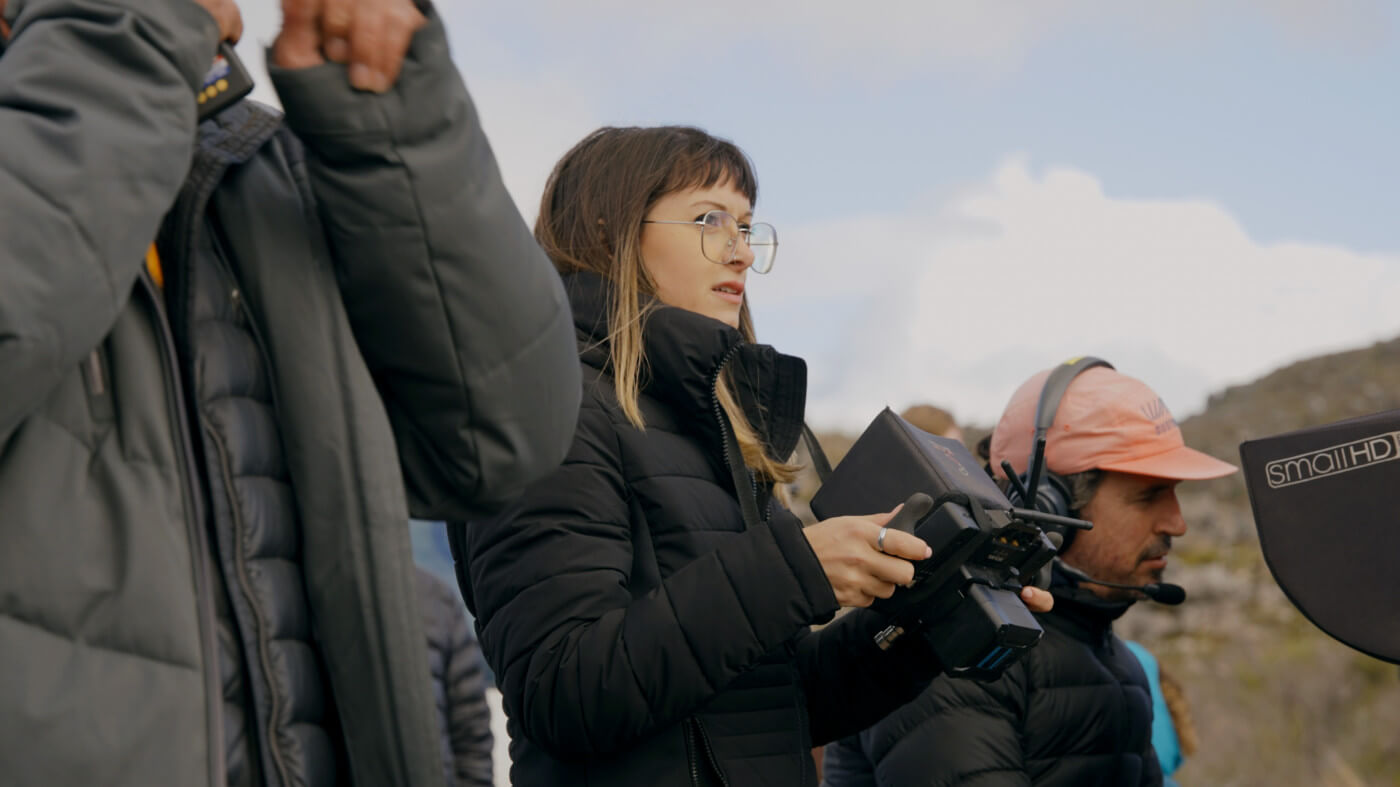
Do you find that the end product is more gratifying when you go through these painstaking hours to see the idea through?
Cache: Unfortunately, yes I do. I feel more connected when I do go through the trenches, even though I wish I didn’t. Right now, I'm in this phase of convincing myself that it’s ok to do something simple that doesn't take a ton of time and is still equally gratifying, interesting and cool. An example of this is when I first started doing VFX and rotoscoping. It was a lot more difficult than it is now. For one video, I was rotoscoping the person in the video for about a week-all day - frame by frame - all day long - thousands of keyframes. It was a painstaking process, and at the end, all I had was a cutout! I didn't have a video. That is the point when you actually start creating, but when it takes you a week to cut something out, it feels like you've already put a lot of time in. If I can get a cut out really fast, then I can make my creation process longer. I can put in those same hours in more effective way. Having better tools where I can do that stuff faster is actually such a blessing. That way, I can focus on the creative aspect rather than getting stuck in the process.
Are you still doing every edit for projects you direct, or are you farming out parts of the process to some other folks on your team?
Cache: It’s a little bit of both. A lot of my edits are found after the fact. I would say I'm maybe 50/50 or maybe a little heavier on the concepting side. I definitely concept stuff before I shoot, and I do storyboard, but for most projects that I'm storyboarding, I leave some wiggle room for ‘Okay then, we're gonna get a bunch of footage and then I'll make something cool out of it’ - and that's where I really need to be the one to sit there and just look through footage and figure out ‘Okay, how does this line up with that?’ - and find those similarities and find those edits that I would never have been able to think of. There are parts of the process that I can absolutely delegate, so I can then focus on the creative aspects. I've been playing the role of a post supervisor as well and working with other artists that I know are able to get these things done.
Another thing to consider is that they're this specific intersection of video, Motion Graphics, and animation. Most people who know after effects are doing text and Motion Graphics, while people who know animation are doing CGI and they don’t do much footage based work. It’s a specific skillset of people who do footage manipulations with animation and after effects. People with this knowledge are usually booked solid, so I can't always find people to farm things out to that I can really trust. I have certain people that I work with that I know can do exactly what I need and I try to focus on the edits that really require my specific skill set that I can't explain to somebody else.
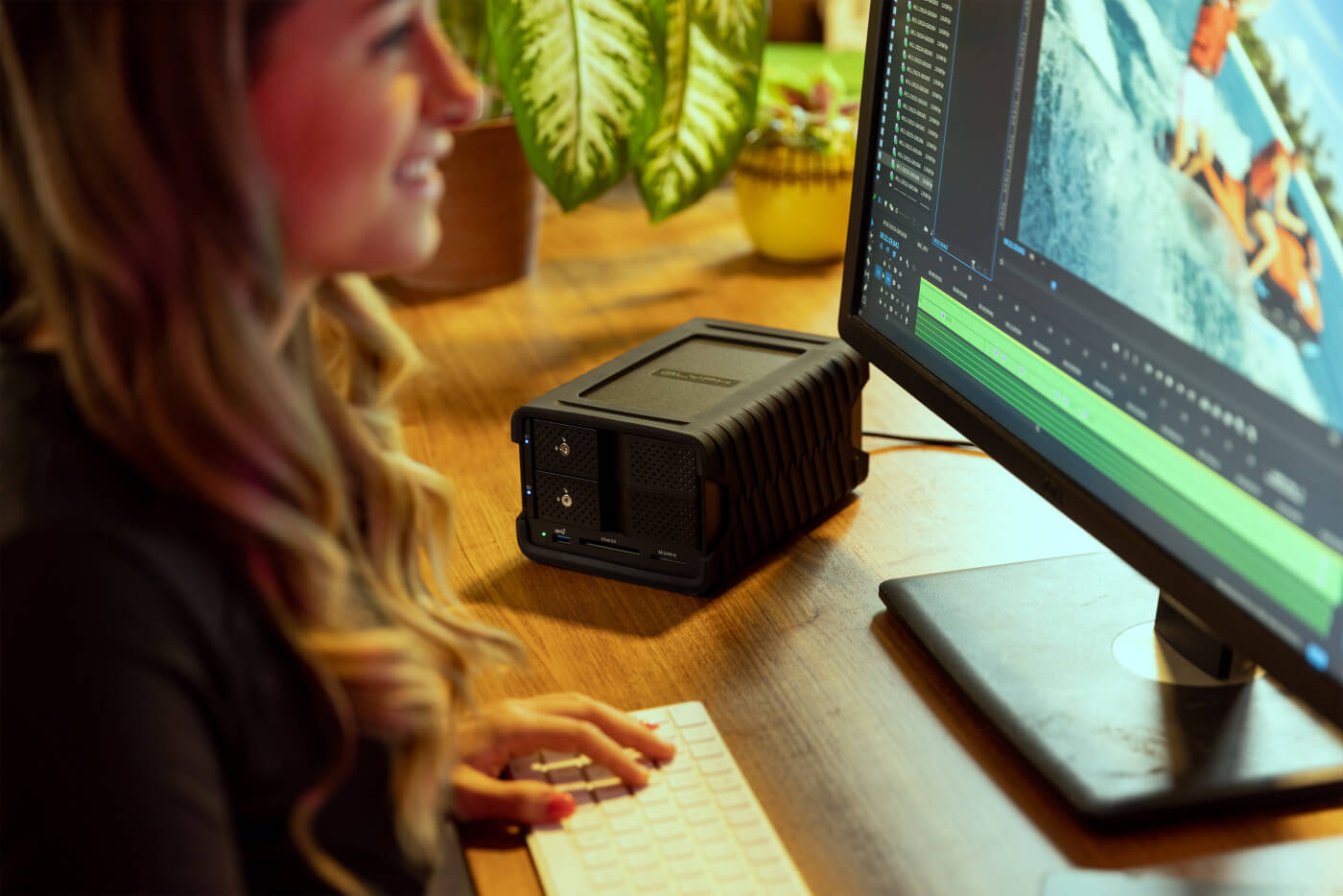
Photo by Modifeye
What role do you feel the evolution of technology has played in shaping aspects of your career? With AI tech like Runway, Midjourney, DALL-E and all this new stuff coming out on the hardware front from 360 cams to drones and more - how do you feel about the evolution of technology in recent years? Are you excited about where it's going?
Cache: I think everything has been very helpful to the process. As I said before, I want my process to be creation. I don't want my process to be just getting the elements that I need. I want that to just be a quick drag and drop, and then being creative is the majority of it. I think that's how it should be, so the new software technologies that make that stuff easier are great - specifically content aware and better rotoscoping. Things like that as well as hardware improvements or camera improvements are beneficial.. For example, right now we have an 18 camera array, and that would have been really really difficult to set every camera. Especially when you're on a set where there's changing environments, but now you can use a QR code to set every camera and it takes 10 seconds rather than five minutes. There's been a lot of improvements like that which make things easier.
A lot of times a good edit will outshine everything else, so having technology that makes the process of shooting and editing easier only expands creativity. I'm an editor so just give me footage that works and then I'm gonna make something cool out of that. I feel a lot of freedom by having these new technologies, and that goes in line with having better hardware and software to edit from. It’s just like ‘Can I do it fast? Can I do it without worrying about crashes? Can I do it without worrying about connection speed and upload speed?’. I really just want to be in a flow state and I don't want anything to take me out of that. By all of these things getting quicker and easier, that flow state just gets stronger and allows me to be where I want to be - which is in a creative headspace.
Can you talk about the creation of Edit.Party and how that's affected your life today?
Cache: I love co-working with people but not always necessarily talking or collaborating on a project. Just being in the same creative space with someone. I find that really motivating. So when covid hit, that was taken away and I tried things like doing twitch streams and hosting things, and that was just too much energy. It really wasn't giving me the co-working vibe that I always knew and loved, so I threw out the idea of ‘edit party’ on Instagram. The idea was a zoom meeting where people work together and don't talk. People were like ‘That's exactly what I've been looking for! I need that. Do it, do it, do it!’. I started it and people joined right away. Actually, three of the people that joined right away - two that joined in the first hour - are now my roommates. This is almost three years later and now these people are such an integral part of my life. We've built a community together. We've had meetups. We've traveled around the world. We've had people join from 72 different countries. It is a global community, and there's so much talent and support. We weren't sure if it would last past covid, but it has! It’s stayed strong 24/7 every single day non-stop. It's been a really enriching community, and tons of people have gotten jobs, relationships, houses - all these great things just by joining.
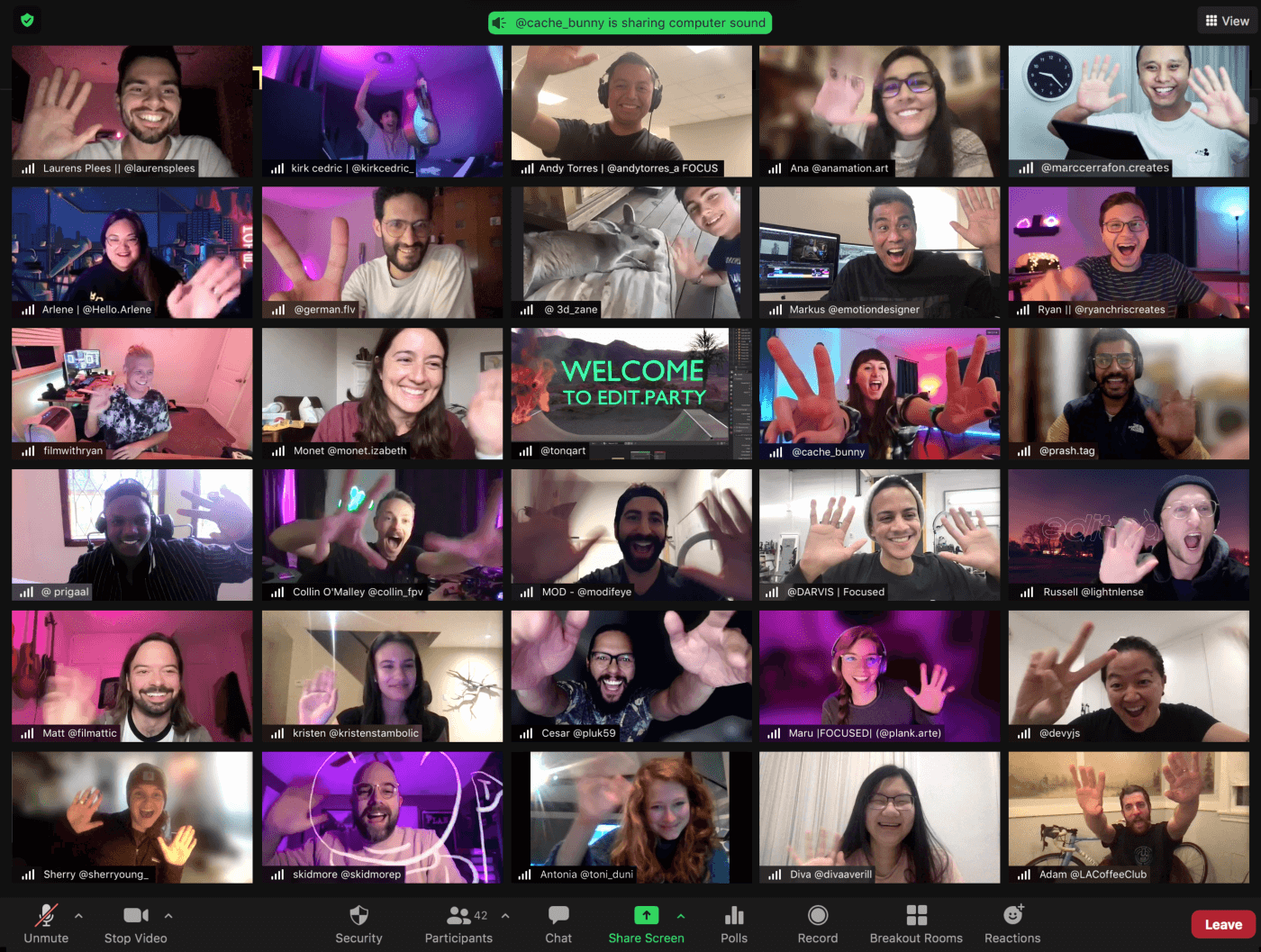
Awesome. You touched on some of your most recent career highlights. What were some of the most gratifying moments?
Cache: I would say some of the most fun jobs that I've had include:
Everything I've done with Virgin is amazing, because they basically tell me ‘Alright, here's the places that we go. Which ones do you want to go to?’ That's the best, and then getting to go on their brand new cruise ship across the ocean was so cool. I get to assemble crews of friends that I know through Edit.Party, friends that I know and trust and have a great friendship with - to be able to transition that into a very good healthy professional environment is just the best of both worlds. You’re having so much fun in these cool places, but also doing great work.
Same with Maldives. It's just such an epic place that I wouldn't even dream of going to. To go with a whole crew of people that, solid friends who are also super talented and we all have this mutual respect. That's incredible. The people in the Maldives are so nice and showed us the best hospitality. We saw a bioluminescent plankton under the stars. So it was just a full sky of stars and then a full sea of stars as well, and that was the first time I have ever seen that. So, so cool.
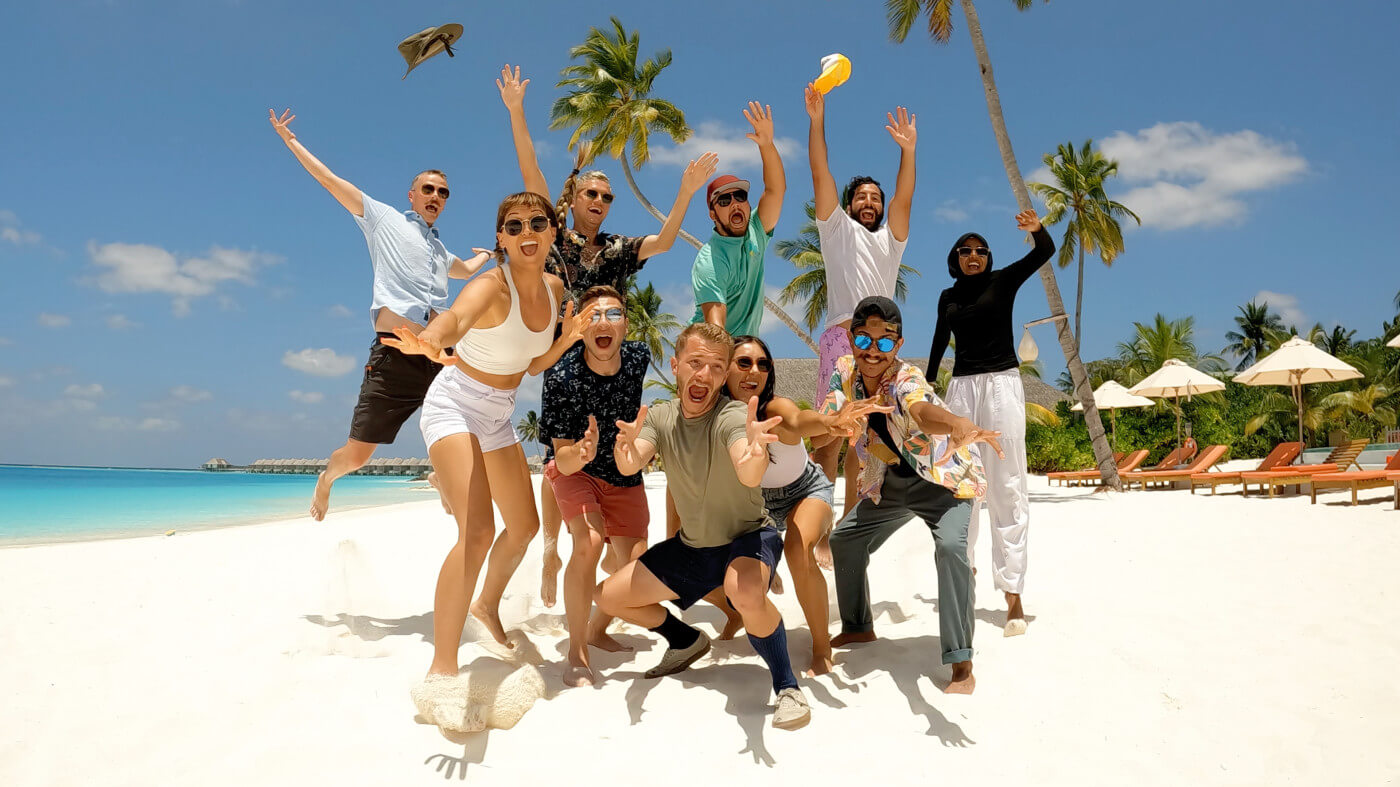
Last but not least, I went to South Africa shooting for Porsche. This is the project I've been working on for the last six months that, low key, is very difficult and time consuming. It’s by far the biggest project that I've done, and we were there for about two weeks. There was a moment during that shoot where we were on the side of a mountain. It was just after sunrise, gorgeous rolling hills, and we have this amazing brand new Porsche with this professional driver and he's like ‘Alright, you're coming for a ride. We're gonna drift up the side of this mountain.’It just so happened to be a lull in shooting because the drone had fallen, so we only had a couple minutes to do this, and he took me in the car. I had never been in a race car like that drifting. It was crazy. We go to the top of the mountain, and there's literally a rainbow, and it was just one of those moments where you're like ‘Alright, this is insane.’ That moment of realizing ‘Wow, I'm drifting in a Porsche under a rainbow in Africa. That's pretty epic.’ I think that would have to be the most crystalline highlight that I can think of in recent days.
What are some of your challenges as a filmmaker?
Cache: I mean that's a huge one. I don't think people realize how many parts of the process can slow you down. That's one of the biggest issues that filmmakers, and particularly editors face - workflow. Just being able to access and edit from their data. I didn't realize that the cables or the ports I was using were bottlenecking me. I just didn't know this stuff until way later in the process, so learning about the speeds of drives, cables, the compatibility of things, was very important. Also, how to package my projects to work properly. For example, if I'm keying something out, I should pre-render that and bring it back in rather than working with active keys roto. Learning all of those things - software tricks and hardware principles that can make the entire process work! if you have one piece of bad hardware, the whole process breaks down and you can't work and your project will crash. Unfortunately, I learned this way too late in the game, so a lot of the grueling hours were wasted simply because I didn’t realize I was doing things wrong. Knowing what you need and working with equipment that you know is right for you is really imperative to not hating the process in the end.
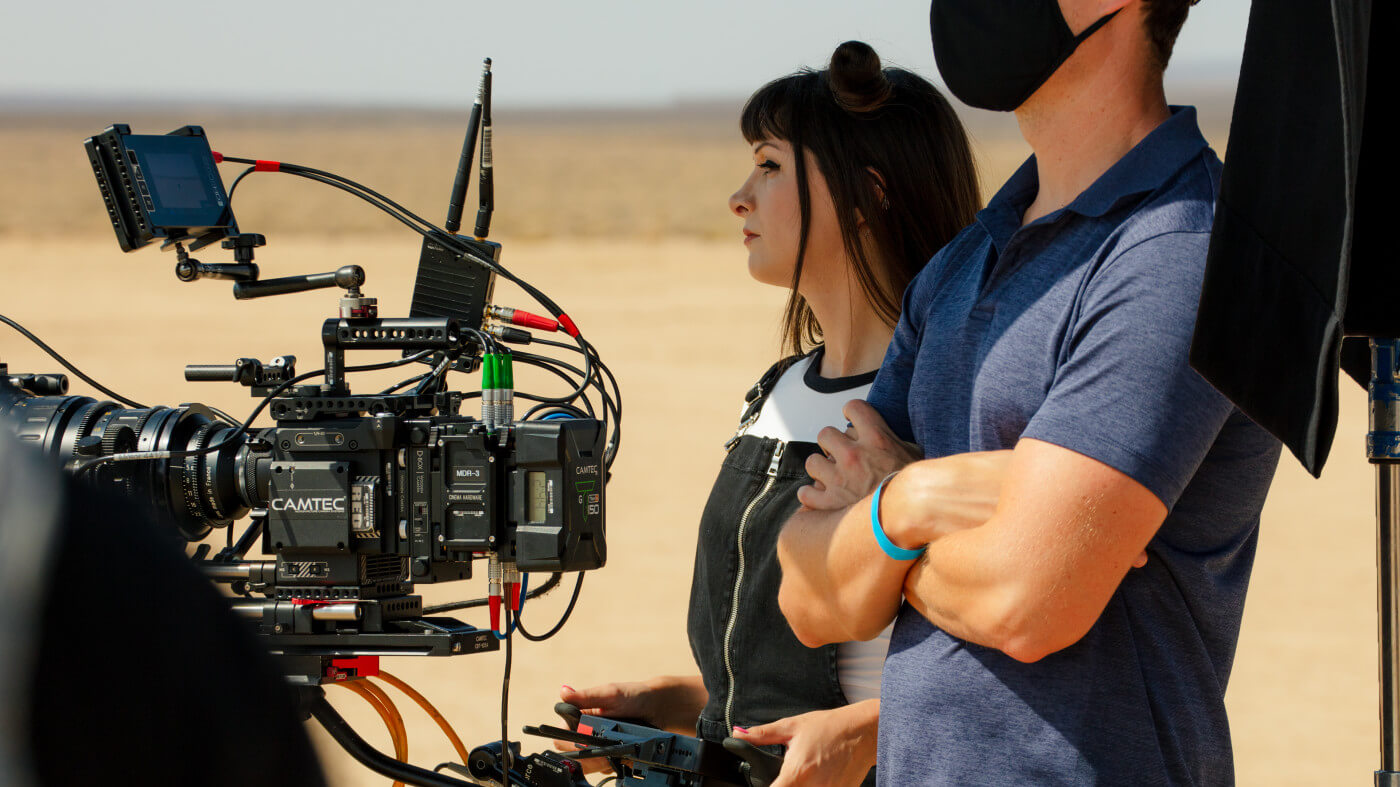
Anything else you'd want people to know about you and your journey? Any final words for the readers?
Cache: Creative community is probably the most essential thing to building my career - not only from networking and passing along jobs (which works both ways, I pass on a ton of jobs as well) - but also just being able to ask questions, being able to commiserate and learn these things that we're talking about. Having a whole community of creative people to bounce ideas off of, to learn things from, to teach things to… even to learn the business side of things is so vital. These platforms are out there, there’s Edit.Party, Black With No Cream is another big Community. Even Reddit has filmmaking forums, so I would just say to get involved in whatever creative community makes sense for you. Don't try to do it all yourself because you're only losing opportunities to learn from other people.


